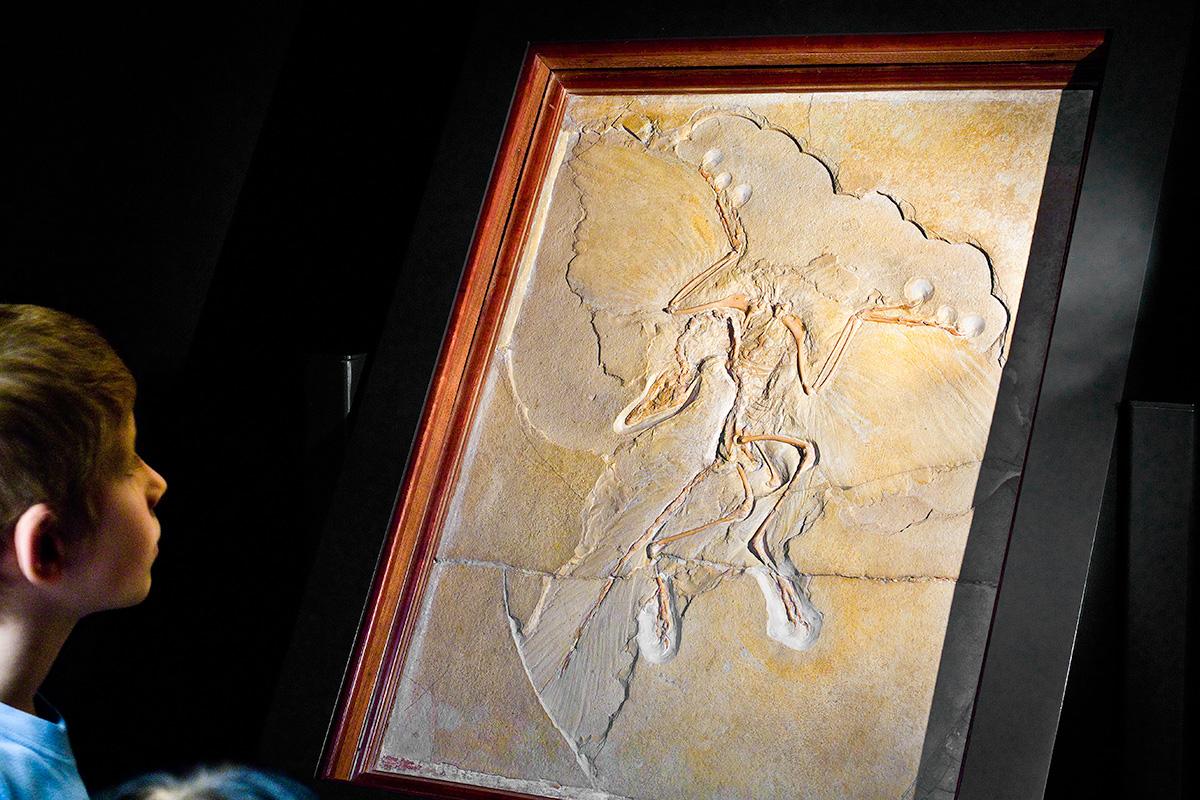During the Berlin summer holidays, the Museum für Naturkunde Berlin offers exciting insights into its research and research collection, there are special exhibitions to discover and many guided tours and hands-on activities.
Holiday tours to the exhibition highlights (in German)
During this guided tour, visitors get to know the highlights of the exhibitions, e.g. the original skeleton of a Tyrannosaurus rex, the archaeopteryx, the polar bear Knut and the wall of biological diversity.
- Every Saturday and Sunday, 12:30 & 2:00 p.m.
- 4,00 € / reduced rate 2,00 € (plus admission) for 45 min
- Tickets directly at the box office, limited number of seats, pre-registration unfortunately not possible
Action stand in the exhibitions
Dinosaur droppings, ammonites, minerals - these are just a few of the objects that visitors of all ages can microscope at an action stand in the exhibitions. Here you will also meet our museum guides, who can tell you astonishing things about our exhibits and research at the museum.
- 22.06- 04.08., every Saturday & Sunday 11:00 – 2:00 p.m.
Open Microscopy Center
Visitors can independently observe the microscope and learn about the questions that scientists at a natural history research museum are investigating. They can also bring their own finds and objects with them and examine them.
- every Thursday, 12.00 - 2.00 p.m.
Live digitisation in the exhibition
The Museum für Naturkunde Berlin digitizes its research collections in order to make them available around the clock worldwide. The entire collection of bees, wasps and ants is currently being processed and catalogued in the exhibition area, giving visitors a direct insight into the collection work at the Museum für Naturkunde Berlin.
Until further notice on Tuesday until Sunday from 11:00 a.m. - 4:00 p.m.
Dinosaurs and other fossils in a computer tomograph (until 12.07.)
The Museum für Naturkunde Berlin and the company YXLON International are currently testing a computer tomograph to find out how larger natural objects, such as antelope skulls, can be captured with it. Tuesdays to Fridays from 1:00 to 4:00 p.m.visitors can be present when objects are scanned.
Humboldt Intervention in the historical mineral exhibition
As a global research infrastructure, the research collection of the Museum für Naturkunde Berlin is a unique scientific and cultural treasure trove of knowledge that is researched by its own and international experts and made accessible worldwide. These include the collections that Alexander von Humboldt has collected on his travels or received through a global network. More than 1.100 objects, primarily minerals and rocks, were brought to the museum by the researcher. To celebrate its 250th birthday, the Museum für Naturkunde Berlin is publishing an extensive, richly illustrated work presenting these minerals and rocks. Accompanying this, a "Humboldt Intervention" in the historic mineral hall shows selected original objects.
Special exhibition ARTEFAKTE
It is an exhibition that also concerns and occupies the young generation: How do we deal with nature's resources in a sustainable way? What can each individual do? The New York-based artist J Henry Fair photographs hard-to-reach industrial areas, toxic waste deposits and coal-mining areas from a bird's eye view and documents the sometimes catastrophic effects of human activity on nature through large-format, aesthetically highly sophisticated images. Together with scientists from the Joint Research Center of the European Commission, the exhibition ARTEFAKTE shows the challenges behind the pictures, how complex some problems are, and that sometimes there is no easy or quick solution. Food, energy, climate, air and water: ARTEFAKTE aims to encourage reflection, but also action - and children can also take part.
Friday for Future
As part of Friday for Future, there will continue to be free admission from 2 p.m. on presentation of the student ID card and an intensive exchange between science and students. The current programme is available via the museum's social media channels.
